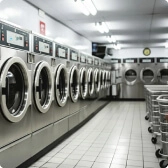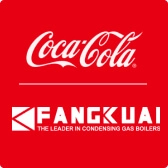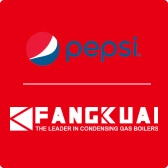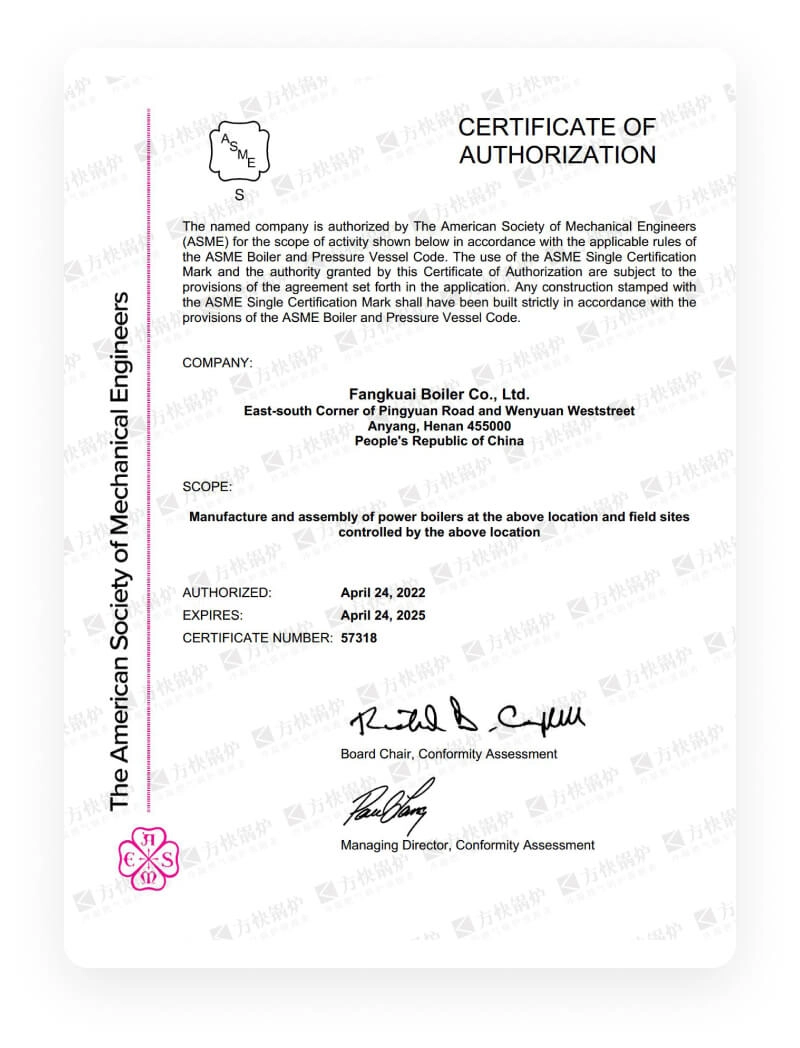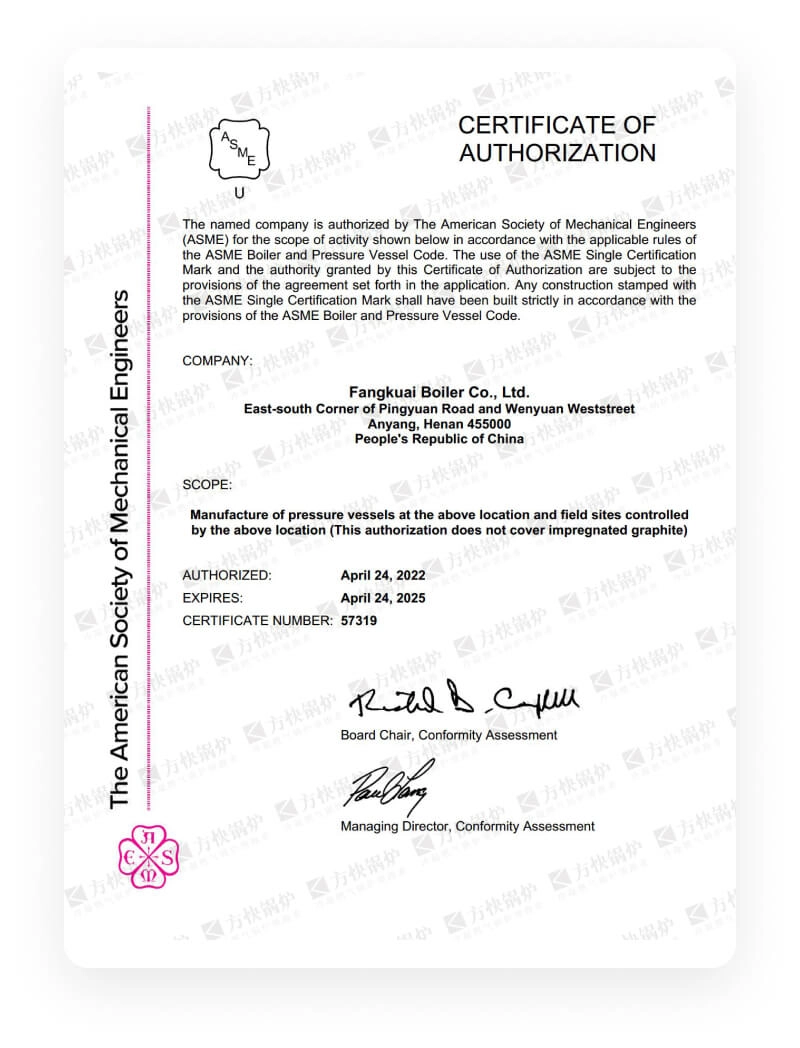How to Choose the Right Boiler for Your Brewery: A Comprehensive Guide
date: 2024-08-30
Page preview:
Introduction
In the brewing industry, the choice of boiler plays a crucial role in ensuring the efficiency and stability of production processes. Whether you're a large-scale brewery or a small craft brewery, selecting the right boiler is essential for meeting the specific needs of brewing operations. From steam boilers to steam generators, the options are vast, but finding the perfect fit for your brewery can be a daunting task. In this blog post, we will delve into the key factors that the brewing industry should consider when selecting a boiler, ensuring optimal performance, environmental sustainability, and cost-effectiveness. Let's explore how breweries can navigate the boiler selection process with confidence and expertise.
Boiler Type
When it comes to selecting the right type of boiler for your brewery, understanding the different options available is key. The brewing industry commonly relies on steam boilers or steam generators for distillation and fermentation processes. Steam boilers provide a stable steam output to meet the demands of brewing operations, while steam generators are suitable for smaller craft breweries, allowing for adjustable steam output based on specific needs.
Understanding Steam Boilers
Steam boilers are favored in larger breweries for their ability to deliver a consistent and reliable supply of steam, essential for various brewing processes. These boilers are designed to handle the high demands of commercial brewing operations, providing the necessary steam pressure and temperature required for efficient production.
Exploring Steam Generators
On the other hand, steam generators are ideal for small-scale breweries or craft breweries looking for a more compact and flexible steam solution. These generators are versatile and can be easily adjusted to meet the varying steam requirements of smaller brewing facilities, offering a cost-effective and energy-efficient option for brewing operations.
Making the Right Choice
When deciding between steam boilers and steam generators, it's essential to consider the scale of your brewery and the specific needs of your production processes. By understanding the differences between these two types of boilers and their suitability for different brewery sizes, you can make an informed decision that best meets your brewing requirements.
Boiler size
When it comes to selecting a boiler for your brewery, considering the size of your brewing operation is essential. The boiler's size should align with your daily brewing capacity to ensure efficient steam production. Here are some key points to keep in mind regarding boiler size:
-
Large breweries typically opt for steam boilers to support their high production demands, ensuring a steady steam output for various brewing processes.
-
Small craft breweries or microbreweries may find steam generators more suitable, allowing for flexibility in adjusting steam output based on their specific needs.
-
Matching the boiler size to your brewery's scale is crucial for maintaining a smooth and uninterrupted brewing operation, ultimately impacting the overall efficiency and productivity of your brewery.
By carefully evaluating your brewery's size and production requirements, you can make an informed decision when selecting a boiler that best fits your needs. The right boiler size not only ensures adequate steam supply but also contributes to the overall performance and reliability of your brewing processes. Whether you're a large-scale brewery or a boutique craft brewery, choosing the appropriate boiler size is a critical step towards enhancing operational efficiency and meeting brewing demands effectively. Remember, the size of the boiler plays a pivotal role in the success of your brewery's production capabilities.
To optimize your brewery's performance and streamline operations, investing in a boiler that aligns with your brewery's scale is paramount. Whether you prioritize efficiency, sustainability, or production output, selecting the right boiler size can significantly impact your brewing processes. Take into account the daily brewing volume, scalability, and future growth projections to ensure that your boiler choice supports your brewery's long-term success and operational excellence. Choose wisely to brew better and brew smarter with a boiler that meets your brewery's unique size requirements.
Boiler Manufacturer Selection
When it comes to selecting a boiler for your brewery, choosing a reputable manufacturer is paramount. The brand of the boiler can greatly influence its quality, performance, and reliability. To ensure a smooth brewing process, opt for manufacturers with a proven track record in the industry. Here are some key points to consider when selecting a brand manufacturer for your brewery's boiler:
-
Reputation: Look for manufacturers with a strong reputation for producing high-quality boilers that meet industry standards. A reputable brand is more likely to provide reliable products and excellent customer service, ensuring a seamless brewing operation.
-
Experience: Consider the manufacturer's experience in catering to the brewing industry specifically. Manufacturers with extensive experience in designing and supplying boilers for breweries are more likely to understand the unique requirements of brewing processes.
-
Customer Reviews: Check customer reviews and testimonials to gauge the satisfaction levels of previous clients. Positive reviews can indicate a manufacturer's commitment to delivering top-notch products and service.
-
Technical Support: Ensure that the manufacturer offers comprehensive technical support and after-sales service. In case of any issues or maintenance requirements, having reliable technical support can save time and ensure the continuous operation of your brewery.
By carefully selecting a reputable brand manufacturer for your brewery's boiler, you can rest assured that you are investing in a high-quality and reliable product that will support your brewing operations effectively. Remember to prioritize quality, reputation, and customer support when making your decision.
Fuel Type Considerations
When it comes to selecting a boiler for the brewing industry, considering the fuel type is a critical factor in ensuring both efficiency and environmental sustainability. Choosing the right fuel type can significantly impact the operational costs and the overall carbon footprint of the brewery. Opting for environmentally friendly fuel options, such as natural gas, can help breweries meet strict environmental regulations while minimizing emissions. High-efficiency combustion systems can further enhance energy utilization and reduce fuel consumption, leading to cost savings in the long run.
In the brewing industry, the selection of fuel type for boilers should align with the brewery's commitment to sustainability and energy efficiency. Prioritizing clean and efficient fuel sources is not only beneficial for the environment but also for the bottom line of the brewery. By investing in boilers that run on eco-friendly fuels and boast high combustion efficiency, breweries can showcase their dedication to sustainable practices while optimizing their operational costs. It's a win-win situation that reflects positively on both the brewery's brand image and financial performance.
Breweries looking to choose the right boiler should carefully evaluate the various fuel types available in the market and select the one that best suits their production needs and environmental goals. The type of fuel used in boilers can have a significant impact on the overall performance and operational costs of the brewery, making it a decision that warrants thorough consideration. By conducting a comprehensive analysis of different fuel options and their implications, breweries can make an informed choice that aligns with their sustainability objectives and economic interests.
In summary, the consideration of fuel types when selecting a boiler for the brewing industry is a pivotal step towards achieving operational efficiency and environmental responsibility. By opting for clean and efficient fuel sources, breweries can not only enhance their sustainability practices but also improve their cost-effectiveness in the long term. Making informed decisions about fuel types can set breweries on the path to reducing their carbon footprint, complying with regulations, and showcasing their commitment to green practices in the competitive brewing landscape.
Importance of field trips
When it comes to selecting a boiler for your brewery, conducting on-site inspections at boiler manufacturers' facilities is crucial. These visits provide valuable insights into the actual operation and maintenance of the boilers, offering a firsthand look at their performance and reliability. By physically visiting these sites, you can witness the production processes firsthand, gain a deeper understanding of the company's expertise in serving the brewing industry, and establish a direct line of communication with the manufacturers.
Understanding Operational Conditions
During on-site inspections, you can observe the boilers in action, evaluate their performance under real-world conditions, and assess their suitability for your brewery's specific needs. This hands-on approach allows you to see how the boilers operate in practice, identify any potential challenges, and make informed decisions based on firsthand observations rather than relying solely on technical specifications or sales pitches.
Assessing After-Sales Support
One of the key benefits of on-site inspections is the opportunity to evaluate the level of after-sales support provided by the boiler manufacturers. By engaging with their technical teams and service personnel, you can gauge their responsiveness, expertise, and commitment to customer satisfaction. A reliable after-sales service is essential for ensuring the continued operation and maintenance of your boiler system, making it a crucial factor in your decision-making process.
Building Trust and Relationships
Visiting boiler manufacturers in person fosters trust and builds relationships between your brewery and the suppliers. By establishing a face-to-face connection, you can communicate your specific requirements, address any concerns, and negotiate terms directly with the manufacturers. This personal interaction creates a foundation for a long-term partnership built on transparency, mutual understanding, and shared goals for enhancing your brewery's operational efficiency.
Confirming Compliance and Certification
On-site inspections also allow you to verify the compliance of the boilers with industry standards, regulations, and certifications. By inspecting the manufacturing facilities and quality control processes, you can ensure that the boilers meet the necessary safety, environmental, and performance requirements for operating in a brewery setting. This verification process is essential for minimizing risks, ensuring regulatory compliance, and safeguarding your brewery's reputation.
Boiler performance and stability
When it comes to the performance and stability of boilers in the brewing industry, there are several key factors to consider. Here are some essential points to keep in mind:
-
Efficiency is paramount: Opt for boilers that boast advanced combustion technology and heat exchange designs to achieve high thermal efficiency of over 104%, significantly reducing energy consumption and operational costs.
-
Environmental friendliness matters: Look for boilers with low nitrogen oxide (NOx) emissions of less than 80 mg/Nm³ to comply with stringent environmental standards, promoting green production practices in breweries.
-
Smart controls are a must: Choose boilers equipped with intelligent self-control systems, utilizing PLC programmable logic controllers and touchscreen interfaces for automated control and remote monitoring, ensuring ease of operation and safety.
-
Reliability is key: Prioritize boilers with sturdy structures and quality materials that undergo rigorous quality control and testing to guarantee long-term stable operation. Multiple safety protection devices, such as overpressure interlock protection and water shortage protection, should be included to safeguard production safety.
In the brewing industry, the performance and stability of boilers are crucial for ensuring smooth operations and optimal production outcomes. By selecting boilers with high efficiency, environmental friendliness, smart controls, and reliability, breweries can enhance their operational efficiency, reduce costs, and maintain a sustainable production environment. It is essential to prioritize these factors when choosing boilers for brewing processes to achieve long-term success and competitiveness in the industry.
Environmental protection requirements
In today's society, environmental protection has become an important issue that cannot be ignored in all walks of life. As an industry with a greater impact on the environment, the brewing industry also needs to assume corresponding environmental protection responsibilities. When choosing a boiler, environmental protection requirements are an indispensable consideration. Choosing a boiler that meets environmental protection standards can effectively reduce the pollutants emitted and reduce the negative impact of the company on the environment during operation.
In order to meet environmental protection requirements, the brewing industry should first consider the emission standards of the boiler. Choosing a boiler with emissions lower than the environmental protection standard can reduce the release of harmful substances such as nitrogen oxides and protect the air quality of the surrounding environment. The selection of environmentally friendly boilers not only helps companies comply with relevant laws and regulations, but also helps to enhance the corporate image and gain social recognition and support.
In addition, environmentally friendly boilers also have obvious advantages in energy saving. Efficient combustion systems and heat exchange designs can effectively improve energy utilization, reduce energy consumption and carbon emissions. While pursuing environmental protection, companies can also achieve the goal of energy conservation and emission reduction and achieve sustainable development.
In addition to the environmental performance of the boiler itself, companies should also consider the environmental awareness and practice of boiler manufacturers when choosing boilers. Choosing boiler manufacturers with environmental certification and green production concepts can better guarantee the environmental performance and quality of boilers. The cooperation between enterprises and environmentally friendly boiler manufacturers is not only conducive to the improvement of corporate image, but also in line with the urgent need for environmental protection in today's society.
In summary, environmental protection requirements are one of the indispensable considerations when choosing boilers in the brewing industry. By choosing boilers that meet environmental standards and cooperating with environmentally conscious manufacturers, brewing companies can achieve environmental protection goals, improve production efficiency, and also contribute to sustainable development. In the future development, environmental protection will become a more important development direction for the brewing industry. Only by constantly pursuing environmental protection innovation can the sustainable development of the industry and a win-win situation for society be achieved.
Energy saving considerations
When it comes to energy efficiency, breweries must prioritize the environmental impact of their boiler choices. Opting for boilers with high efficiency ratings can significantly reduce energy consumption and operational costs. By selecting boilers that utilize advanced combustion technology and heat exchange design, breweries can ensure that their production processes are both eco-friendly and cost-effective.
Moreover, the integration of smart control systems in boilers can enhance energy efficiency further. Features like programmable logic controllers and touchscreen interfaces enable automation and remote monitoring, ensuring optimal energy utilization and reducing wastage. Breweries that prioritize energy efficiency not only contribute to environmental sustainability but also benefit from lower utility bills in the long run.
In addition to technological advancements, breweries can also explore alternative fuel options to enhance energy efficiency. Choosing eco-friendly fuel sources, such as natural gas, can help reduce emissions and align with stringent environmental standards. By selecting boilers with high-efficiency combustion systems, breweries can maximize energy utilization and minimize their carbon footprint, demonstrating a commitment to sustainability.
By incorporating energy-efficient practices into their boiler selection process, breweries can achieve significant cost savings and environmental benefits. Investing in energy-efficient boilers not only reduces operational expenses but also positions breweries as responsible corporate citizens. With a focus on energy efficiency, breweries can enhance their competitiveness while contributing to a more sustainable future for the brewing industry.
Comprehensive selection factors
When choosing a boiler suitable for the brewing industry, multiple factors need to be considered comprehensively. First, the type and size of the boiler must match the production needs of the brewery. Secondly, choosing a reliable brand manufacturer can ensure the quality and after-sales service of the boiler. Fuel type is also an important consideration, affecting production costs and environmental protection. During the field investigation, we can have a more intuitive understanding of the performance and stability of the boiler. At the same time, environmental protection requirements and energy-saving considerations should also be taken into consideration to ensure the sustainable development of brewing production.
Overall, choosing a suitable boiler can not only improve production efficiency, but also reduce costs and protect the environment. Through the guidance provided in this article, I hope that the brewing industry can be more handy in the boiler selection process, make wise decisions, and contribute to the development of the brewing industry. Let us work together to create a more prosperous and sustainable wine industry. Thanks for reading!




